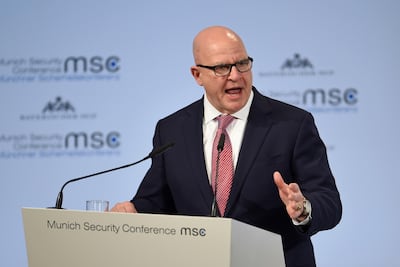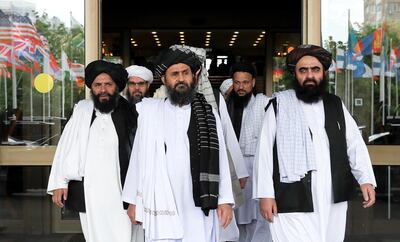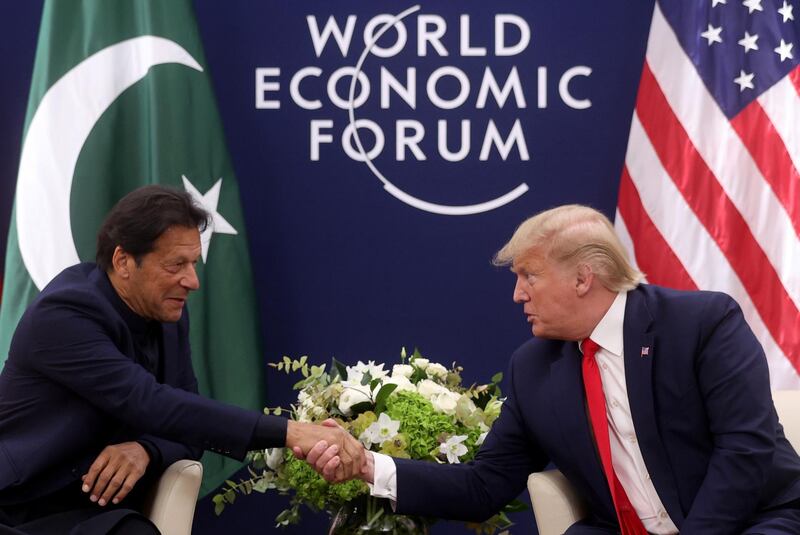For the second time in a year, the US and the Taliban stand faltering on the brink of an agreement to wind down their now generation-long conflict. Taliban attacks on major cities have reduced and last month, the group's leadership proposed a 10-day ceasefire to prevent the kind of optics that led President Donald Trump to cancel his Camp David peace summit last September.
Why is a group whose name is shorthand for fanaticism and brutality going to such lengths for dialogue? It certainly isn’t because they are losing militarily. The Pentagon gave up on assessing the number of districts and people under Taliban control last year. Meanwhile, the most recent report by the US special inspector general for Afghanistan reconstruction indicates that the Taliban’s ability to mount attacks is undiminished even after a decade of US-led coalition operations.
The Tailban’s choices cannot be understood until Pakistan’s enormous influence on the movement is taken into account. That is why Washington’s point man for Afghan peace, Ambassador Zalmay Khalilzad, headed to Pakistan on February 1 in search of the breakthrough that has eluded him in Doha. A US-Taliban peace deal is something that the Pakistani government and its military believes is in its vital national interests, so long as Islamabad is kept in the loop.
So what are these interests? Pakistan has spent the last dozen years in an increasingly untenable position, caught in the crossfire between its most irreplaceable patron, the US, and its most useful client, the Taliban. It has proved unwilling to give up either relationship even in the face of attacks in its own territory – whether by Pakistani Taliban sympathisers or US forces. On one hand, since the country’s birth in 1947, Pakistan’s leadership has seen American aid, expertise and diplomatic support as vital to national survival. On the other, since 1971, when the country’s eastern half broke off to become Bangladesh, Islamabad has feared its western provinces on the Afghan border might also be torn away, enticed by ethnic links to Afghanistan’s Pashtuns. The only inoculation from irredentism, in Pakistan’s eyes, is the cultivation of Afghan allies who can manage Kabul for it.

At the heart of Pakistan’s existential fears are its perennial conflicts with India, which it thinks it cannot survive unless it has both the US and the Taliban on its side. At their most ambitious, Pakistan’s generals in the 1990s were unwilling to accept anything less than complete control of Kabul for its own allies. But following traumatic levels of terrorist blowback from the Taliban’s friends – and steadily increasing Pashtun activism – the Pakistani establishment has reconciled itself to a power-sharing arrangement that constrains the Taliban’s power. More importantly, the Pakistan Army has used its considerable leverage to persuade a reluctant Taliban leadership to take up a similar view.
Persuading the United States, however, has been a different matter. Pakistan has never believed that the US would escape the British and Soviet fate in Afghanistan; it would eventually seek a negotiated exit from an expensive and interminable sideshow of a war. But America proved to be exceptionally dogged in its commitment to military victory, and increasingly bitter towards Pakistan, a country it believed was having it both ways.
Mr Trump’s firing of General HR McMaster as US national security adviser in 2018 was the turning point Pakistan had been waiting for. It marked the end of Pentagon influence in the Oval Office, and Pakistan’s relationship with the Taliban turned from a liability into an asset overnight. Prime Minister Imran Khan has been rewarded with a visit to Washington and a resumption of training and technical support for Pakistan's armed forces– a change after years of cuts in US military aid. All of this has been especially vital at a time when Pakistan’s economy is struggling and its military skirmishes with its southern neighbour have reached a level of intensity not seen in almost 20 years.

New Delhi, meanwhile, has been unenthusiastic about the Doha talks. Pakistan’s success in reviving its strategic relationship with the US limits the Indian government’s ability to isolate it internationally. India also has a long-term interest in ensuring that any government in Kabul is neutral towards New Delhi, if not friendly. At the same time, the US special inspector general’s report makes it clear that Afghan forces cannot defeat the Taliban on their own, and American efforts to do a deal with the Taliban are motivated by diminishing confidence that its own support can help the situation. The Trump administration wants out, and India cannot afford to offend the American president by opposing a high-level priority. Furthermore, India has an interest in curtailing the spread of extremist groups in the region, so the right long-term peace deal would also serve it well.
The Afghan government, which finds itself in an extraordinarily vulnerable position, holds views that mirror those of India. Acute fears of abandonment and betrayal – as well as the loss of many gains made in human rights since 2001 – abound. Any deal the US makes with the Taliban is likely to significantly empower the latter.
For Pakistan, therein lies the golden opportunity. It would succeed in its mission to give its client a powerful seat in Kabul, while benefiting from Washington’s subsequent satisfaction that US troops can go home. If the Taliban’s seat at the table is too powerful, however, the price would be paid by Afghan women, minorities and other groups it has long oppressed.
There is another option however. Even if the US succeeds in ending its involvement as a combatant, it must remain engaged as a champion for peace in Afghanistan. America’s unique ability to reassure and restrain Pakistan may be the only way to prevent the tragedy of history repeating itself.
Johann Chacko is a writer and South Asia analyst






